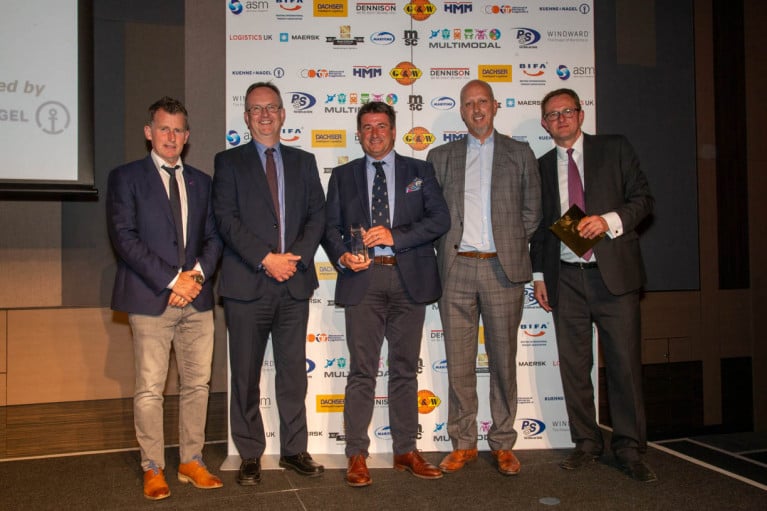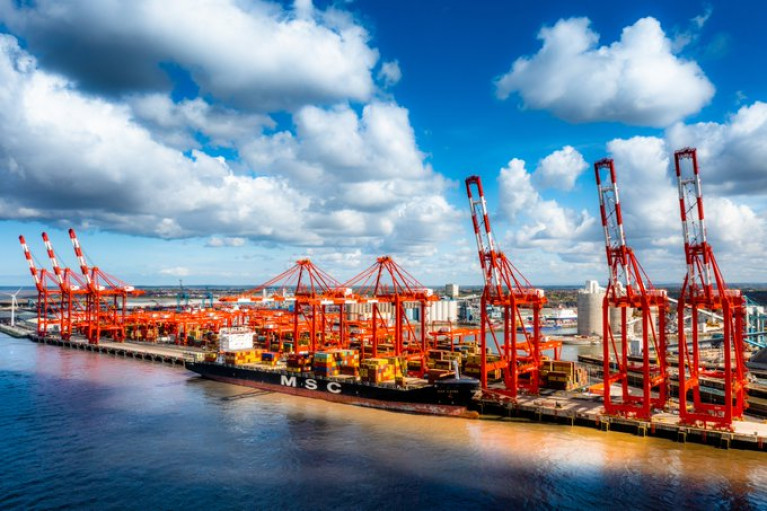Displaying items by tag: Multimodal Awards
Operator of Liverpool Port, Peel Ports Group Achieves New Sustainability Accolade at Multimodal Awards
In the UK, the Peel Ports Group has been recognised as the winner of the ‘Sustainability’ category at the 2022 Multimodal Awards in acknowledgement of its impressive environmental efforts.
As one of the country's largest port groups, Peel Ports manages several key regional trading hubs, including major facilities in Liverpool and Manchester, Heysham, London Medway, Great Yarmouth and Glasgow. In addition across the Irish Sea at Dublin Port,it also operates a container terminal (MTL) and owns BG Freight Line, which provides short sea container services between the UK, Ireland and mainland Europe.
The leading port operator emerged victorious amongst a credible line-up of finalists, including Maersk, ONE and Howard Tenens Logistics, thanks to its commitment to drive a more sustainable future via the pledge to be a carbon neutral business by 2040.
The award acknowledges steps taken by the group to become the first port operator to make such a commitment towards a Net-Zero status, and recognises its ongoing work to lower emissions.
Recent adoptions include switching the vast majority of its fleet to electric vehicles and transitioning machinery and plant equipment to the environmentally-friendly diesel fuel alternative, Hydrotreated Vegetable Oil (HVO).
This transition to HVO recently saw the group hit the million-litre milestone as the first port operator to make the change, representing a third of the Port of Liverpool’s entire annual fuel consumption and in partnership with local Merseyside supplier County Oil Group Ltd.
More than £1.2bn has also been invested across the last decade on sustainable infrastructure and technology to futureproof operations, including the delivery of energy-efficient cranes, LED lighting and working with sustainable suppliers and equipment.
Claudio Veritiero, CEO of Peel Ports Group commented: “Peel Ports has taken industry leading steps to decarbonise our future and it’s fantastic to see this publicly recognised. Winning the Multimodal Sustainability award and being acknowledged for our efforts amongst our peers reinforces our continued drive towards becoming the leading sustainable port operator in the UK”
“Our goal is to be a sustainable business that can enable a positive future for the UK’s supply chain, driving change for the better whilst achieving commercial goals and business growth. The collective efforts of our employees and the strategic drive of the teams behind much of this change have been key to this success, so this award is a testament to their hard work”
Ports Group in UK Nominated as Port Operator of the Year
Peel Ports Group, the UK's second largest port operator has made the shortlist for Port Operator of the Year at the prestigious 2021 Multimodal Awards for the logistics industry.
The port group manages several key regional trading hubs for the UK economy, including major facilities in Liverpool, London Medway and Glasgow.
Afloat adds Peel Ports also operate Marine Terminals Ltd (MTL) in Dublin Port, where part of the group runs BG Freight Line with container connections linking the UK, The Netherlands, France, Portugal and Spain and onward worldwide. The Irish terminal also provides supply chains for CMA/CGM (see story) DFDS, MacAndrews and Seago Maersk.
The nomination for the award comes on the back of a decade of strong financial performance and investment, which has seen EBITDA double over the last 10 years, by £131m (FY11) to £275m (FY21), and £750m+ invested on infrastructure over the past five years, contributing to significant employment, regeneration regional growth.
Mark Whitworth, CEO at Peel Ports said:Our company has transformed since 2011 and we believe the long-term approach we have taken with the business is a significant factor in being recognised as one of the UK’s top operators. The investment we have made into our ports and our wider logistics business continues to improve services for customers, create jobs and support the wider economy.
Despite the challenges of Brexit and the pandemic, our team has risen to every challenge and continued to provide first class services to the supply chain. That gives us a lot of confidence that we are on the right track and I’m certain that even more successful times are ahead of us.
The 2021 Multimodal Awards recognises excellence in air, road, rail, maritime, and freight forwarding services, with categories voted for by readers of the Multimodal newsletter and exhibitors & visitors to Multimodal.
The awards ceremony will be held at the NEC in Birmingham on Tuesday 19th October 2021, with more than 650 guests from across the sector expected to attend.

























































